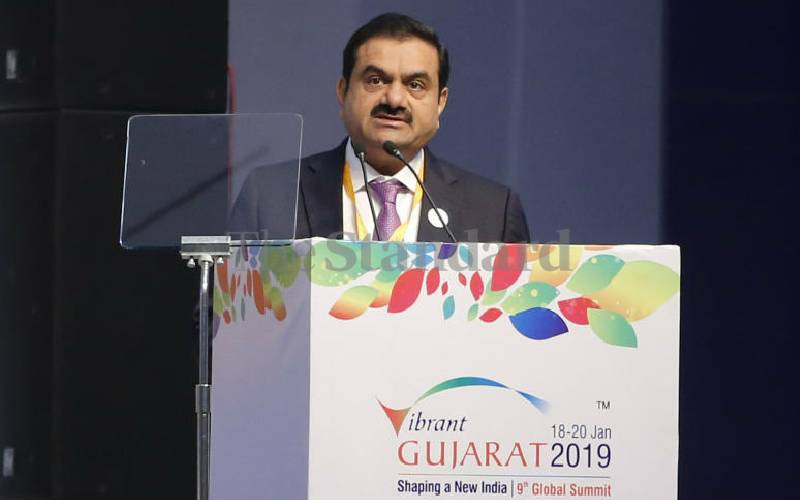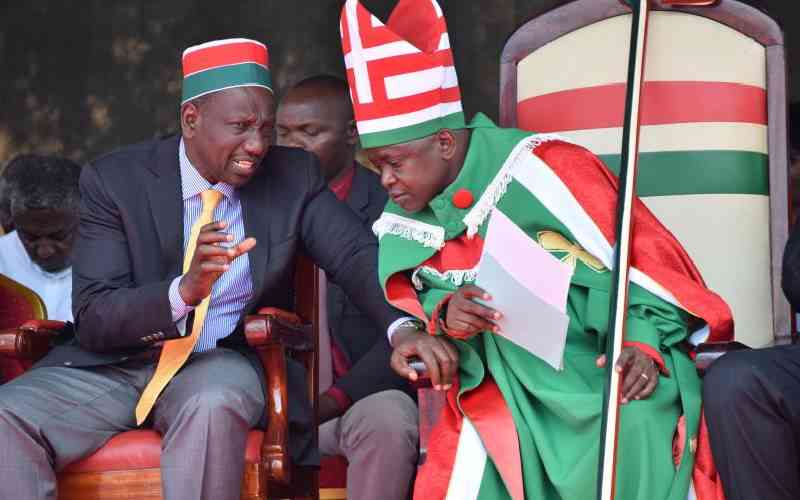By Jevans Nyabiage and Emmanuel Were
Nairobi, Kenya: The Communications Commission of Kenya finally spoke out at the end of last week on the proposed acquisition of yuMobile by Safaricom and Airtel Kenya.
CCK’s month-long silence over whether or not it will accept the acquisition bid seemed to have greatly so disturbed Safaricom that the Goliath in Kenya’s telecoms industry came out to say the deal is off.
The two mobile phone services operators had filed applications to buy different assets of the struggling, loss-making, Indian-owned yuMobile on February 28.
And just a day after Safaricom said it had withdrawn its acquisition offer, CCK responded with a tough set of conditions if the yuMobile deal is to go through.
The conditions
Safaricom and Airtel Kenya were to each pay Sh467 million ($5.4 million) to the Exchequer, besides meeting 12 other conditions.
These conditions range from the buyers ensuring yuMobile subscribers retain their numbers over a six-month transition period to the operators being up to date on payment of regulatory fees.
The big question, however, has been: In laying out these conditions after its silence on the acquisition offers, was CCK passing on a subtle message that the State wants a new player in the market?
The three names floated as being likely to enter Kenya’s mobile phone services operations are South African telecom giant MTN, Vietnamese mobile phone services provider Viettel and surprise candidate Nigerian firm Megatech Engineering Ltd.
It is important also to remember that yuMobile is not the only operator on its way out.
France Telecom, which owns 70 per cent of Orange Kenya, is said to be putting its house in order to prepare for a possible takeover.
In the coming months, the peculiarity of the Kenyan mobile phone market will likely continue to be a hot topic.
While Safaricom records profits in the billions of shillings, none of the other three operators, Airtel, yuMobile or Orange Kenya, has ever returned a profit.
Is what is happening in the industry due to market failure or is it just Schumpeter’s creative destruction playing out?
Stay informed. Subscribe to our newsletter
Schumpeter’s creative destruction in this case would be how something new — mobile money transfer, which Safaricom dominates with M-Pesa — killed something old — the telephone as just a tool of communicating (which yuMobile and Orange focused on by having low calling rates).
One school of thought has it that CCK has decided to use the impending exit of yuMobile as an opportunity to correct the wrongs in the telecoms market.
Under this line of thinking, CCK is thought to have wanted to test Safaricom and Airtel’s resolve in chasing after yuMobile’s coveted assets of network infrastructure and subscribers. And if either of the two telecoms gives up the chase, CCK could use the opportunity to sweeten the deal for the entry of another telecoms operator.
Unique market
Kenyan telecoms market is unique in many ways. It is shaped by two forces: the growth and consequent dominance of Safaricom, and the level of socio-economic and enterprise sector development.
Safaricom’s entrenched presence makes it very difficult for other players in the market to expand and run profitable operations. The operator has grown to the size where it can very successfully leverage its economies of scale to keep a tight hold on its subscriber base. M-Pesa is a good example of this.
“It’s only natural that Safaricom will behave in this manner as a private sector, profit-driven organisation. However, it now probably feels that it needs to keep perpetuating this model [leveraging its strength into new market areas, products and services] to survive and retain its strong position going forward,” said Mr Dobek Pater, the managing director of Africa Analysis, which tracks telecoms markets in the continent.
The second factor is that perhaps the Kenyan market is not yet ready for three or four strong players because it lacks a sufficient addressable market in terms of consumer spend on telecommunications services, and the under-development and slow growth of the enterprise sector.
“Maybe in five years’ time the market will be able to sustain a few stronger players, but not currently,” Mr Pater said.
The question one needs to ask is: Are Kenyan users of telecommunications services worse off by having a strong Safaricom than they would have been with three or four providers of more or less equal size.
STRUCTURAL DIFFERENCES
If Safaricom provides satisfactory services to the user, which allow the country to develop from a socio-economic and educational perspective, then perhaps it is better to have a single strong player that can afford to invest in new technologies and network development, rather than three to four players that would be equally struggling and under-performing at the expense of users.
Mr Peter Wanyonyi, a telecoms analyst, is of the opinion that the exit of these two mobile operators would not be a result of market failure, but rather a consequence of the companies’ inability to adapt to the Kenyan market, as well as a failure of the regulatory authority.
“Orange has been unable to capitalise on its market-leading fixed-network to offer services that would have attracted and retained customers, choosing instead to engage in a futile war with the Government over Telkom Kenya assets,” said Mr Wanyonyi.
Pater agreed that the firms could have had a better approach when entering the market. Rather than competing on price (like Airtel did) and destroying value for every service provider in the market, the competition should have been more along the lines of customised services, greater product or service innovations, bundling of services, or moving into lateral markets where services can be made more efficient through the use of telecoms technology.
Neighbouring countries Uganda and Tanzania have eight mobile phone operators compared to Kenya’s four (with two planning exits).
Analysts say there is a large structural difference between Kenya’s telecoms market and those of Uganda and Tanzania.
Kenya’s consumption of telecoms services tends to be largely value added services (VAS), such as mobile Internet, money transfer, over-the-top (OTT) services like Whatsapp, Viber and Skype, short message services (SMS) and multimedia messaging services (MMS).
Tanzania’s consumption is largely of voice calls and SMS. So, while Kenya has a total of 19.2 million Internet users, Tanzania has just 3.5 million.
REGULATORY ENVIRONMENT
This difference is also borne out by the differences in coverage patterns. In Tanzania and Uganda, you have virtually countrywide 2G coverage, with very few 3G and 4G spots and even then, only in major towns. In Kenya, even 2G coverage is not countrywide, but major roads and all urban centres enjoy some form of 3G coverage because our focus is more on data than voice.
“An operator can thrive in Tanzania with little or no VAS and data offerings, but this would not work in Kenya. This, I believe, is what doomed yuMobile and Orange in the end,” Wanyonyi said.
However, Pater said the fact that both Uganda and Tanzania have more mobile operators does not mean that those markets are necessarily more competitive or delivering better services to subscribers.
“Given the addressable markets and socio-economic factors in both these markets, my view is that this number of operators is not sustainable. Even with infrastructure sharing [where new market entrants will not need to deploy physical infrastructure], many of the operators are likely to remain niche market players and consolidation is highly probably within five years,” Pater said.
On the side of regulations, analysts say the regulatory environment in Kenya is poor.
In CCK’s 2013 report, for example, none of the four operators was compliant with Quality of Service (QoS) requirements.
The highest score was, ironically, by Orange, which posted 62.5 per cent compliance, against a target of 80 per cent. The other operators all posted levels of 50 per cent compliance.
This lack of emphasis on compliance has opened the market to dominance by Safaricom. Ideally, a telecoms operator should attract and retain customers on the basis of infrastructure development, product innovation and good marketing. In Kenya, the emphasis is on the latter two.
Had Safaricom been forced to invest more in its network, other operators would have had the opportunity to eat into its market share through the provision of better quality for calls and Internet.
“Poor regulatory enforcement, ultimately, is what has turned the Kenyan telecoms market into Safaricom’s playground,” Pater said.
The way forward for the telecoms market in Kenya, Wanyonyi said, depends a lot on what CCK does about enforcing QoS, and what the authorities think about M-Pesa.
WAY FORWARD
The money transfer service is already bigger than some banks in the country, and it has gone into banking territory fully: it offers bank accounts, savings, loans, money transfer, bill payments — M-Pesa is a bank in all but name.
“It is now clearly too big and too important a player to just be a department at a telecoms company. The monopolies authorities should consider splitting M-Pesa from Safaricom, with Safaricom owning a large bit of the new company but with the rest offered to Kenyans via an IPO,” Wanyonyi said.
This would free the telecoms sector enormously: the new M-Pesa company can then offer cross-operator services that Airtel users can also enjoy, and Safaricom would be left to focus on what it really is licensed to do: offer telecommunications services.
“For the telecoms sector to become vibrant again, this step is inevitable — and Airtel’s future depends on this step being taken, failing which it has a very bleak future in the country.”
Pater said Airtel is likely to become sufficiently profitable over time to remain in the market. Its presence in multiple markets across Africa is expected to allow it to generate some economies of scale across the different operations (such as centralised back-end services and apps) where it will be able to survive.
“Airtel Kenya’s future is tied to the Airtel Africa strategy, as it is a key market for Airtel. If Airtel decides to pull out of Africa, it will probably sell all of its operations simultaneously.”
 The Standard Group Plc is a
multi-media organization with investments in media platforms spanning newspaper
print operations, television, radio broadcasting, digital and online services. The
Standard Group is recognized as a leading multi-media house in Kenya with a key
influence in matters of national and international interest.
The Standard Group Plc is a
multi-media organization with investments in media platforms spanning newspaper
print operations, television, radio broadcasting, digital and online services. The
Standard Group is recognized as a leading multi-media house in Kenya with a key
influence in matters of national and international interest.
 The Standard Group Plc is a
multi-media organization with investments in media platforms spanning newspaper
print operations, television, radio broadcasting, digital and online services. The
Standard Group is recognized as a leading multi-media house in Kenya with a key
influence in matters of national and international interest.
The Standard Group Plc is a
multi-media organization with investments in media platforms spanning newspaper
print operations, television, radio broadcasting, digital and online services. The
Standard Group is recognized as a leading multi-media house in Kenya with a key
influence in matters of national and international interest.








